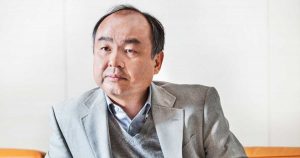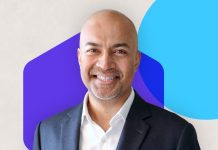Masayoshi Son is proud to be Korean. Born and raised in a small town on Japan’s southern island Kyushu, Son is the child of North Korean parents who emigrated to the island nation to seek out better opportunities. The family adopted the surname Yasumoto after their move and Son carried that name until he graduated from the University of California.
Since his school days, Son has experienced profound discrimination for being different and understands the toll this can take on a young person. “When I was in elementary and junior high schools, I was in agony over my identity so much that I was seriously contemplating taking my own life,” Son shared in an interview. “I’d say discrimination against people is that tough.”
In an effort to push back against the prejudice, Son decided to assume his ancestral Korean name after he graduated from University of Californian Berkeley and returned home. “That’s because I wanted to become a role model for ethnic Korean children and show them that a person of Korean descent like me, who publicly uses a Korean surname, can achieve success despite various challenges,” Son said.
Despite Son’s tough start, he made his first million while he was still a college student. While at school, he tasked himself with coming up with one invention a day and it was one of these innovations that gave him his start. With the help of some his professors, Son built an electronic translator device that he sold to Sharp Corporation for $1.7 million. Then he made his second million by importing used video game machines from Japan and installing them in dorm rooms and restaurants.
Son graduated from UC Berkeley with a B.A. in economics in 1980 and founded software wholesale company Unison World with the proceeds from his translator sale. After returning to Japan, he sold the company to Kyocera Corporation for close to $2 million. Following that, he launched SoftBank, a wholesaler of word processing and gaming software, in 1981 and then broke into the publishing business with rapidly growing sales of 4.5 billion yen.
It was at about this time that Son had to be hospitalized due to his ongoing struggle with chronic hepatitis. Son underwent experimental treatment for his condition and was confined to a medical facility for close to four years. He was forced to step down as CEO of SoftBank but had a phone, fax and computer installed in his hospital room so he could continue to offer advice to his fledgling firm. After his recovery, Son returned to the helm and cashed in as an early investor in companies like Yahoo in 1995 and Alibaba in 1999.
He has achieved soaring levels of success since his early days. Now hailed as the Bill Gates of Japan, he has built his own IT empire with Tokyo-based Softbank Corporation – a multi-billion-dollar conglomerate with company holdings in the telecommunications, entertainment, financial services and venture capital sectors. Forbes magazine has named him the world’s 45th most powerful person in 2013 and ranked him as forty-third of The World’s Billionaires 2019 with a net worth of $23 billion.
























